Moscow Spy Scandal Snowballs: What We Know

To date, not a single Russian official or law
enforcement agency has commented on the record about the reported case
against the Federal Security Service (FSB) officers, identified as
Sergei Mikhailov and Dmitry Dokuchayev, and other alleged accomplices.
(illustrative photo)
The murky investigation
of Russian intelligence officers reportedly facing treason charges has
taken a fresh turn, with the Interfax news agency quoting unnamed
sources as saying that two suspects are accused of collaborating with the U.S. Central Intelligence Agency (CIA).
The news, unverified and uncorroborated, is the latest in a growing number of remarkable leaks that hint at possible struggles and hidden agendas inside Russia's formidable security apparatus.
To date, not a single Russian official or law enforcement agency has
commented on the record about the reported case against the Federal
Security Service (FSB) officers, identified as Sergei Mikhailov and
Dmitry Dokuchayev, and other alleged accomplices.
Instead, numerous Russian media citing anonymous sources have
reported the suspects may be tied to hackers targeting the Russian elite
and may have disclosed information related to cyberattacks targeting
the U.S. election system.
These reports come on the heels of an assessment by U.S. intelligence
agencies in early January concluding that Russia orchestrated a hacking
campaign aimed at helping President Donald Trump defeat his Democratic
rival, Hillary Clinton, in the election.
The anonymous sources have not expressly linked the reported
accusations against Mikhailov and Dokuchayev to the breaches of
Democratic Party servers, though the Novaya Gazeta newspaper has
reported there may be links to attacks on U.S. state-electoral systems.
Here's a look at what we know and don't know about the case:
Who Are The Suspects?
So far, Mikhailov and Dokuchayev are the only FSB officers to be
identified, based on anonymous sources cited by several Russian media
outlets, as suspects in the investigation. Media reports, however,
indicate there may be a total of six suspects -- including a third FSB
officer -- already detained.
Mikhailov's arrest, reportedly in December, was first revealed by Kommersant
on January 25. He served as a department head at the FSB's Center for
Information Security (CIS). Mikhailov is "well-known" among Russia's
cybersecurity experts, according to Andrei Soldatov, an investigative
journalist who has written widely about Russian intelligence services
and their cybercapabilities.
Mikhailov was also a prominent witness in the trial of Pavel
Vrublevsky, who ran an electronic-payment company called Chronopay and
in 2013 was convicted of cyberattacks on Russian companies, including
state-owned airline Aeroflot. Mikhailov testified in court that he knew Vrublevsky and his talents well.
The arrest of Dokuchayev, whom media reports identify as a CIS employee, was first reported
by Rambler News Service on January 26. Other Russian media reports have
identified Dokuchayev as a former hacker who used the alias Forb.
Russian media reports have also tied their arrests to that of Ruslan
Stoyanov, a manager of the renowned Russian cybersecurity company
Kaspersky Lab. The company confirmed the arrest to RFE/RL, identifying Stoyanov as the head of its investigation unit.
Novaya Gazeta reported on January 31 that a total of six suspects -- including Mikhailov, Dokuchayev, and Stoyanov -- have been arrested.
Ivan Pavlov, a prominent Russian lawyer who has previously defended individuals against treason charges, confirmed to Kommersant that the investigation involved more than two suspects, one of whom is his client.
Pavlov, who has yet to publicly identify his client, indicated the
suspects were arrested in December. He did not immediately respond to a
request for comment from RFE/RL.
Vrublevsky, meanwhile, is a successful entrepreneur and colorful
figure among Russia's digital elite. In a book published in 2014, Brian
Krebs, an American investigative reporter, investigated some of the
Russian crime networks involved in the vast amounts of e-mail spam that
clutter the Internet. His book, Krebs wrote in a blog post on January 29, was based on a cache of leaked e-mails from Vrublevksy's company.
Vrublevsky also told Krebs that he believed Mikhailov was the one who
stole the e-mails and leaked them. Krebs said Vrublevsky was also
convinced Mikhailov was leaking sensitive information to U.S.
intelligence.
What Are They Charged With?
Russian authorities have not officially made the charges public, but
media reports say Mikhailov and Dokuchayev have been accused of treason.
Kommersant cited Pavlov as confirming that suspects in the case were
accused of disclosing state secrets.
Precisely what secrets they are accused of disclosing remains
unclear. Interfax on January 31 quoted "sources familiar with the
situation" as saying that they were suspected of relaying confidential
information to the CIA.
Mikhailov and Dokuchayev "are accused of violating their oath and
cooperating with the CIA," Interfax quoted one source as saying.
It quoted the same source as saying that a total of four people had
been formally charged in the matter, and that several other potential
accomplices had been identified as well.
Another source cited by Interfax was quoted as saying that the investigation involves parallel charges of treason and hacking.
Is Case Linked To U.S. Election Hacking?
No clear link has been made between the investigation and what U.S. intelligence called a Kremlin-directed operation to influence the U.S. presidential election with cyberattacks and propaganda.
But Novaya Gazeta last week quoted unidentified sources as saying
that Mikhailov was suspected of providing U.S. intelligence with
information about King Servers, a hosting service owned by Russian
citizen Vladimir Fomenko.
The company was used as a platform by hackers who targeted
state-election computer systems in Arizona and Illinois last year.
Fomenko, who rents space on his servers, has denied any links to the perpetrators of the cyberattacks.
Novaya Gazeta reported that Fomenko rented server space to
Vrublevsky, the Chronopay proprietor against whom Mikhailov testified.
So far, no claims have surfaced in the leaks indicating the suspects
may have relayed information about breaches of U.S. political
organizations like the Democratic National Committee that were widely
seen as damaging to Clinton's campaign.
The Kremlin has denied any involvement in the cyberattacks.
Is Humpty Dumpty A Fall Guy?
This is where things get even murkier.
Unconfirmed media reports have linked Mikhailov to the shadowy
hacking collective known as Shaltai-Boltai -- or Humpty Dumpty, in
Russian -- that has published troves of e-mails and text messages stolen
from prominent Russian officials and well-connected entrepreneurs.
The RosBalt news agency quoted
a source over the weekend as saying that the accused mastermind of
Shaltai-Boltai, Vladimir Anikeyev, told investigators that Mikhailov was
involved with the group.
RosBalt was founded by Natalya Cherkesova, the wife of Soviet and Russian intelligence veteran Viktor Cherkesov,
the former head of Russia's federal antinarcotics agency. The
publication frequently quotes unidentified sources in Russia's security
services.
Pavlov, however, told Rambler News Service on January 31 that he was
familiar with the details of the investigation and that, as far as he
knew, it had nothing to do with Shaltai-Boltai.
Soldatov, meanwhile, told The Guardian that the leaks about the hacking collective "suggest a hastily made cover-up."
"Mikhailov and Stoyanov were real experts in one thing, the Russian
digital underground, not the kind of stuff that Shaltai-Boltai leaked,"
he said.
"So if there is anything real about the treason charges, the kind of
information they could pass on would be about this, perhaps about
informal actors in the DNC hacking scheme," Soldatov added.
Manager At Russian Cybersecurity Firm Kaspersky Lab Arrested

An employee works in the virus lab at the headquarters of Russian cybersecurity company Kaspersky Lab in Moscow. (file photo)
Prominent Russian cybersecurity company Kaspersky Lab says a manager who headed its investigation unit has been arrested.
In a statement on January 25, Kaspersky spokeswoman Maria Shirokova
confirmed a report in the Russian daily Kommersant that Ruslan Stoyanov
was arrested in December.
Kommersant cited unidentified sources close to the Federal Security
Service (FSB) as saying that Stoyanov's arrest might have been linked to
an investigation into a deputy chief of the FSB's Center for
Information Security, Sergei Mikhailov, who they said was also arrested
in December.
The report said both men are charged with treason.
Shirokova said that Stoyanov's arrest "has nothing to do with
Kaspersky Lab and its operations," adding that "the case is related to a
period when Stoyanov was not employed by the lab."
She said the company has no details of the charges against Stoyanov.
A list on the website LinkedIn indicates Stoyanov started working at
Kaspersky in 2012 and that his previous jobs include a position at the
Russian Interior Ministry’s cybercrime unit in the early 2000s.
There was no immediate comment from the FSB.
Kaspersky Lab has been cooperating with the FSB on cybersecurity-related issues since 2013.
Russia's Supreme Court said in April 2016 that 28 people were convicted of high treason in 2015.
Based on reporting by Kommersant, AP, RIA, TASS, and Interfax
Reports: Second FSB Agent Arrested; Possible Links To U.S. Election Hacking

The FSB's headquarters in Moscow (file photo)
Russian media have reported that another Federal Security Service
(FSB) officer has been arrested on treason charges in a case that may be
linked to cyberattacks targeting the U.S. presidential election
campaign.
The reports by Rambler News Service on January 26 come a day after the Kommersant newspaper reported that a senior officer of the cyberintelligence department of the FSB -- Russia’s lead security agency -- had been arrested.
Kommersant said Sergei Mikhailov, deputy chief of the FSB's Center for Information Security, had been arrested in December on treason charges.
Another Russian newspaper, Novaya Gazeta, on January 26 corroborated the Kommersant report.
Novaya Gazeta quoted unidentified sources as saying Mikhailov was arrested during a meeting with other FSB officers in Moscow, and was taken from the room with a sack over his head.
Also arrested in December was a manager of the renowned Russian cybersecurity company Kaspersky Lab.
The reports by Rambler News Service on January 26 come a day after the Kommersant newspaper reported that a senior officer of the cyberintelligence department of the FSB -- Russia’s lead security agency -- had been arrested.
Kommersant said Sergei Mikhailov, deputy chief of the FSB's Center for Information Security, had been arrested in December on treason charges.
Another Russian newspaper, Novaya Gazeta, on January 26 corroborated the Kommersant report.
Novaya Gazeta quoted unidentified sources as saying Mikhailov was arrested during a meeting with other FSB officers in Moscow, and was taken from the room with a sack over his head.
Also arrested in December was a manager of the renowned Russian cybersecurity company Kaspersky Lab.
Investigation Chief Arrested
Kaspersky Lab confirmed the arrest to RFE/RL, identifying the manager
as Ruslan Stoyanov and saying he headed the company’s investigation
unit.
A list on the website LinkedIn indicates that Stoyanov started working at Kaspersky Lab in 2012 and that his previous jobs included a position at the Russian Interior Ministry’s cybercrime unit in the early 2000s.
On January 26, Rambler News and REN-TV both said a second FSB officer had also been arrested last month, and identified him as Major Dmitry Dokuchayev.
Dokuchayev headed another unit within the Center for Information Security and reportedly served under Mikhailov.
News of the arrests comes as U.S. intelligence agencies continue investigating the degree to which Russian government-backed hackers penetrated Internet servers and e-mail accounts belonging to political-party officials, first and foremost the Democratic Party.
In one of his final orders as president, Barack Obama publicly endorsed the conclusions of the U.S. intelligence community that Moscow was behind the hacking and named nine top Russian officials and entities associated with the FSB and the Russian military intelligence agency, the GRU.
Earlier in January, the top U.S. intelligence official told a Senate committee that the hacking campaign constituted unprecedented meddling into the U.S. electoral process.
A list on the website LinkedIn indicates that Stoyanov started working at Kaspersky Lab in 2012 and that his previous jobs included a position at the Russian Interior Ministry’s cybercrime unit in the early 2000s.
On January 26, Rambler News and REN-TV both said a second FSB officer had also been arrested last month, and identified him as Major Dmitry Dokuchayev.
Dokuchayev headed another unit within the Center for Information Security and reportedly served under Mikhailov.
News of the arrests comes as U.S. intelligence agencies continue investigating the degree to which Russian government-backed hackers penetrated Internet servers and e-mail accounts belonging to political-party officials, first and foremost the Democratic Party.
In one of his final orders as president, Barack Obama publicly endorsed the conclusions of the U.S. intelligence community that Moscow was behind the hacking and named nine top Russian officials and entities associated with the FSB and the Russian military intelligence agency, the GRU.
Earlier in January, the top U.S. intelligence official told a Senate committee that the hacking campaign constituted unprecedented meddling into the U.S. electoral process.
No Official FSB Comment
Tsargrad TV, a Russian news site run by a Kremlin-loyal businessman, said Mikhailov had links to a Russian hacker group known as Shaltai-Boltai.
That hacker group has published troves of e-mails of prominent Russian officials and businesspeople that it claims to have obtained in cyberattacks.
The FSB has not officially commented on the investigation.
Novaya Gazeta reported that that -- in addition to Mikhailov, Dokuchayev, and Stoyanov -- two other individuals have been arrested in connection with the investigation, one of them an FSB colleague of Mikhailov’s.
The newspaper quoted unidentified sources as saying that Mikhailov is suspected of providing U.S. intelligence with information about King Servers, a hosting service owned by Russian citizen Vladimir Fomenko.
King Servers was used as a platform by hackers who targeted state-election computer systems in Arizona and Illinois last year. Fomenko, who rents space on his servers, has denied any links to the perpetrators of the cyberattacks.
According to Novaya Gazeta, Fomenko rented server space to another Russian entrepreneur named Pavel Vrublevsky, who ran an electronic payment company called Chronopay and in 2013 was convicted of cyberattacks on Russian companies.
Tsargrad TV, a Russian news site run by a Kremlin-loyal businessman, said Mikhailov had links to a Russian hacker group known as Shaltai-Boltai.
That hacker group has published troves of e-mails of prominent Russian officials and businesspeople that it claims to have obtained in cyberattacks.
The FSB has not officially commented on the investigation.
Novaya Gazeta reported that that -- in addition to Mikhailov, Dokuchayev, and Stoyanov -- two other individuals have been arrested in connection with the investigation, one of them an FSB colleague of Mikhailov’s.
The newspaper quoted unidentified sources as saying that Mikhailov is suspected of providing U.S. intelligence with information about King Servers, a hosting service owned by Russian citizen Vladimir Fomenko.
King Servers was used as a platform by hackers who targeted state-election computer systems in Arizona and Illinois last year. Fomenko, who rents space on his servers, has denied any links to the perpetrators of the cyberattacks.
According to Novaya Gazeta, Fomenko rented server space to another Russian entrepreneur named Pavel Vrublevsky, who ran an electronic payment company called Chronopay and in 2013 was convicted of cyberattacks on Russian companies.
Mikhailov reportedly testified in court that he knew Vrublevsky and his talents well.
U.S. Expels 35 Russian Diplomats, Announces New Sanctions For Alleged Hacking

"These actions are not the sum total of our response
to Russia's aggressive activities. We will continue to take a variety of
actions at a time and place of our choosing, some of which will not be
publicized," U.S. President Barack Obama said in a statement.
The United States says it is expelling nearly three dozen Russian
diplomats as it announced new economic sanctions and other punitive
measures in response to alleged Russian hacking during the presidential
election.
The moves, announced on December 29 by the White House, had been
widely publicized ahead of time, including by President Barack Obama in
an interview earlier this month.
But the moves also come less than a month before Obama leaves office
and his successor, Donald Trump, assumes the presidency. Trump has
repeatedly brushed aside intelligence assessments and White House
statements about the alleged Russian hacking, raising the question about
whether the new sanctions will remain in place after his inauguration
on January 20.
A White House statement said two Russian diplomatic compounds in
Maryland and New York, believed to be involved in intelligence
gathering, were ordered closed, and 35 Russians, identified as
intelligence operatives, were being expelled from the country.
Additionally, nine top officials and entities associated with the
Russian military intelligence agency, the GRU, and the main Russian
security agency, the FSB, were being hit with new financial and travel
sanctions.
A senior U.S. administration official, who spoke on condition of
anonymity, said the four GRU officials were directly involved in
computer hacking, including that of U.S. political parties. Three
companies hit with sanctions provided "material support" to GRU hacking
efforts, the official said.
"These actions are not the sum total of our response to Russia's
aggressive activities. We will continue to take a variety of actions at a
time and place of our choosing, some of which will not be publicized,"
Obama said in a statement.
The Kremlin has repeatedly denied it was behind any computer
intrusions of U.S. political parties or e-mail systems, though President
Vladimir Putin has also made cryptic comments suggesting possible
involvement of Russian officials.
Responding to the White House announcement on December 29, Kremlin
spokesman Dmitry Peskov told news agencies that Moscow regretted the new
measures, calling them unlawful and saying they would "destroy
diplomatic relations with Russia."
Russia Accused Of Backing Trump Over Clinton
The CIA, the FBI, and the broader U.S. intelligence community have
concluded that hackers, likely operating with the authority of the
highest levels of the Russian government, broke into Internet servers
and e-mail accounts belonging to the U.S. Democratic Party, and other
officials during the election campaign.
On December 9, The Washington Post reported that the CIA had determined the intent of the Russia hackers was to help Trump win the presidency, not just to undermine confidence in the U.S. electoral system.
The New York Times also reported that intelligence officials had
concluded Russian hackers accessed Republican Party computers but didn't
release potentially damaging e-mails or other materials.
That led analysts to conclude that the intent of the Russian hacking
was to in fact help propel Trump to the White House. He ultimately
prevailed in the November 8 election, defeating Democrat Hillary
Clinton.
Those conclusions have been repeatedly dismissed by Trump, most
recently on December 28, in remarks at his estate in Palm Beach,
Florida.
"I think we ought to get on with our lives. I think that computers
have complicated lives very greatly. The whole age of computer has made
it where nobody knows exactly what is going on. We have speed, we have a
lot of other things, but I'm not sure we have the kind of security we
need," Trump told reporters.
In a December 11 television interview, he asserted that the CIA conclusions were being used by Democrats to undermine his electoral victory.
But Trump has also faced growing pressure in Congress, including by
top Republican lawmakers, who have called for a full inquiry into the
extent of Russian hacking.
At least three separate Senate committees are slated to launch investigations in January.
Administration officials indicated the targeting of the 35 Russian
diplomats, whom the White House identified as intelligence officers, was
partly in response as well to what they said was sustained harassment
against U.S. diplomats in Russia.
Those U.S. complaints have been mounting for months now, what one
administration official called "behavior unprecedented in the post-Cold
War era."
In conjunction with the new measures, the Department of Homeland Security released a new report detailing some of the Russian hacking, which included not only state electoral databases but other "critical infrastructure."
"To be very clear here, they have been interfering in the American
democratic process and the conduct of American diplomacy, this should be
of concern to all Americans and members of both parties," one
administration official said.
In addition to punishing Russian activities, U.S. officials said the
new measures were aimed at deterring future activity, in the United
States and in what they said were U.S. allies.
"Russia is not going to stop. We have every indication that they will
continue to interfere in democratic elections in other countries," the
official said.
U.S. Intelligence: Putin Ordered Hacking Campaign To Help Trump Win

Russian President Vladimir Putin had a "clear
preference" in having Donald Trump win the U.S. presidential election,
the report concludes.
WASHINGTON -- U.S. intelligence agencies have concluded that Russian
President Vladimir Putin ordered a hacking campaign that aimed to help
President-elect Donald Trump and influence the U.S. election.
A newly declassified report released on January 6 by the Office of the Director of National Intelligence said the effort sought to help Trump, a Republican, by discrediting his Democratic rival, former Secretary of State Hillary Clinton, who was widely predicted to win the November 8 contest.
"We assess Russian President Vladimir Putin ordered an influence campaign in 2016 aimed at the U.S. presidential election. Russia's goals were to undermine public faith in the U.S. democratic process, denigrate Secretary Clinton, and harm her electability and potential presidency," the 25-page report said.
"We further assess Putin and the Russian government developed a clear preference for President-elect Trump," it said. "We have high confidence in these judgments."
The report comes amid mounting alarm among policymakers and legislators in Washington about the scope and intent of Russian cyberintrusions during last year’s election campaign.
"When it appeared to Moscow that Secretary Clinton was likely to win the election, the Russian influence campaign began to focus more on undermining her future presidency," the report said.
Russian intelligence, the report said, did access some systems of state or local electoral boards. But the Department of Homeland Security concluded that the systems that were targeted or compromised were not involved in vote tallying.
The report also concluded that state-run Russian media -- including the Sputnik news agency and the international television network RT -- "contributed to the influence campaign" by promoting Trump and "serving as a platform for Kremlin messaging to Russian and international audience."
A newly declassified report released on January 6 by the Office of the Director of National Intelligence said the effort sought to help Trump, a Republican, by discrediting his Democratic rival, former Secretary of State Hillary Clinton, who was widely predicted to win the November 8 contest.
"We assess Russian President Vladimir Putin ordered an influence campaign in 2016 aimed at the U.S. presidential election. Russia's goals were to undermine public faith in the U.S. democratic process, denigrate Secretary Clinton, and harm her electability and potential presidency," the 25-page report said.
"We further assess Putin and the Russian government developed a clear preference for President-elect Trump," it said. "We have high confidence in these judgments."
The report comes amid mounting alarm among policymakers and legislators in Washington about the scope and intent of Russian cyberintrusions during last year’s election campaign.
"When it appeared to Moscow that Secretary Clinton was likely to win the election, the Russian influence campaign began to focus more on undermining her future presidency," the report said.
Russian intelligence, the report said, did access some systems of state or local electoral boards. But the Department of Homeland Security concluded that the systems that were targeted or compromised were not involved in vote tallying.
The report also concluded that state-run Russian media -- including the Sputnik news agency and the international television network RT -- "contributed to the influence campaign" by promoting Trump and "serving as a platform for Kremlin messaging to Russian and international audience."
Margarita Simonyan, RT's editor-in-chief, responded incredulously on Twitter, saying: "They're joking, right?"
There was no immediate reaction to the report from the Kremlin, though Russian officials have repeatedly denied the allegations in the past.
Phone lines to the Russian Embassy in Washington were busy on January
6, and a spokesman did not immediately respond to an e-mail request for
comment.

U.S. President-elect Donald Trump: "This is a political witch hunt."
There was also no immediate response from Trump. In the past,
however, he has dismissed statements issued by the White House and U.S.
intelligence agencies accusing Russian government officials of directing
the hacking, which targeted the Democratic National Committee (DNC) as
well as the Republican Party.
E-mails stolen from the DNC were later published by WikiLeaks and
elsewhere, embarrassing top party officials. WikiLeaks has denied it
obtained the files from Russia.
Earlier on January 6, Trump lashed out at the furor in Washington surrounding the Russian allegations, calling it a "political witch hunt."
In an interview with The New York Times, Trump said that other states or individuals could have been behind the breaches.
"China, relatively recently, hacked 20 million government names," Trump was quoted by The New York Times as saying, referring to the theft of millions of federal government personnel files in 2014 and 2015. "How come nobody even talks about that? This is a political witch hunt."
The interview was conducted prior to the report's release and shortly before he was given a classified briefing by top intelligence officials, including Director of National Intelligence James Clapper.
Trump released a statement after the meeting, which he called “constructive.”
His statement, however, did not specifically address the findings that the Russian government directed the hacks. Instead, it stated only that Russia, China, and others were "consistently trying to break through the cyberinfrastructure" of U.S. government institutions.
"There was absolutely no effect on the outcome of the election, including the fact that there was no tampering whatsoever with voting machines," Trump said.
The report also suggested that the lessons Russian intelligence officials learned from the U.S. hacking efforts were likely to be replicated in the future, possibly in key European elections scheduled for this year.
On January 5, Clapper testified before one of three Senate committees that is investigating the Russian allegations, saying that intelligence officials are even more "resolute" about their conclusions now than they were in October, when the first public assessment was released.
"I don't think we've ever encountered a more aggressive, a more direct effort to interfere in our elections processes than in this case," Clapper told the Senate Armed Services Committee.
Earlier on January 6, Trump lashed out at the furor in Washington surrounding the Russian allegations, calling it a "political witch hunt."
In an interview with The New York Times, Trump said that other states or individuals could have been behind the breaches.
"China, relatively recently, hacked 20 million government names," Trump was quoted by The New York Times as saying, referring to the theft of millions of federal government personnel files in 2014 and 2015. "How come nobody even talks about that? This is a political witch hunt."
The interview was conducted prior to the report's release and shortly before he was given a classified briefing by top intelligence officials, including Director of National Intelligence James Clapper.
Trump released a statement after the meeting, which he called “constructive.”
His statement, however, did not specifically address the findings that the Russian government directed the hacks. Instead, it stated only that Russia, China, and others were "consistently trying to break through the cyberinfrastructure" of U.S. government institutions.
"There was absolutely no effect on the outcome of the election, including the fact that there was no tampering whatsoever with voting machines," Trump said.
The report also suggested that the lessons Russian intelligence officials learned from the U.S. hacking efforts were likely to be replicated in the future, possibly in key European elections scheduled for this year.
On January 5, Clapper testified before one of three Senate committees that is investigating the Russian allegations, saying that intelligence officials are even more "resolute" about their conclusions now than they were in October, when the first public assessment was released.
"I don't think we've ever encountered a more aggressive, a more direct effort to interfere in our elections processes than in this case," Clapper told the Senate Armed Services Committee.
The intelligence report was compiled on an order from Obama, who
instructed officials to complete a full investigation of the alleged
hacking before he leaves office on January 20.
In response to the cybercampaign, the White House last month
announced new sanctions targeting Russia's leading intelligence
agencies, the GRU and the FSB.
It also expelled 35 Russian diplomats in response to what Washington calls a campaign of harassment of its diplomats in Russia.
It also expelled 35 Russian diplomats in response to what Washington calls a campaign of harassment of its diplomats in Russia.
With reporting by RFE/RL's Mark Najarian
Trump Criticizes CIA Conclusions On Russia Election Interference

U.S. President-elect Donald Trump
U.S. President-elect Donald Trump has criticized the CIA's conclusion
that Russia interfered in the presidential election, saying it was
being used by Democrats as "just another excuse" for his defeat of
Hillary Clinton.
Trump’s comments, in an interview broadcast on December 11, put him in the extraordinary position of openly discounting the U.S. intelligence community's consensus even before he takes office next month.
They come amid growing clamor among congressional leaders for a deeper investigation into the extent of Russian cyberattacks, and their intent.
They also come two days after U.S. intelligence officials were quoted as saying they have "high confidence" that Russian hackers not only targeted Democratic Party organizations and leaders, but did so to undermine Clinton.
"I think it's ridiculous. I think it's just another excuse. I don't believe it," Trump told Fox News.
Trump’s comments, in an interview broadcast on December 11, put him in the extraordinary position of openly discounting the U.S. intelligence community's consensus even before he takes office next month.
They come amid growing clamor among congressional leaders for a deeper investigation into the extent of Russian cyberattacks, and their intent.
They also come two days after U.S. intelligence officials were quoted as saying they have "high confidence" that Russian hackers not only targeted Democratic Party organizations and leaders, but did so to undermine Clinton.
"I think it's ridiculous. I think it's just another excuse. I don't believe it," Trump told Fox News.
Trump has long said the culprit could be China or just a random hacker sitting on a couch.
The Washington Post on December 9 reported that Russia hackers intervened in the election to help Trump win the presidency, not just to undermine confidence in the U.S. electoral system.
The Washington Post on December 9 reported that Russia hackers intervened in the election to help Trump win the presidency, not just to undermine confidence in the U.S. electoral system.
"It is the assessment of the intelligence community that Russia’s
goal here was to favor one candidate over the other, to help Trump get
elected," The Washington Post quoted an unnamed senior U.S. official who
it said had been briefed on an intelligence presentation made to
senators. “That’s the consensus view."
The New York Times also reported that intelligence officials had concluded Russian hackers accessed Republican Party computers but didn’t release potentially damaging e-mails or other materials, like what many believe happened for the Democrats.
That led analysts to conclude that the intent of the Russian hacking was to in fact help propel Trump to the White House, The New York Times said.
The New York Times also reported that intelligence officials had concluded Russian hackers accessed Republican Party computers but didn’t release potentially damaging e-mails or other materials, like what many believe happened for the Democrats.
That led analysts to conclude that the intent of the Russian hacking was to in fact help propel Trump to the White House, The New York Times said.
But Republican National Committee head Reince Priebus, who will be
Trump's chief of staff in the White House, said on ABC television on
December 11 that no Republican Party computers or information had been
hacked, something the party had confirmed with the FBI.
A group of Democratic senators last week publicly called on President
Barack Obama to provide more details about potential Russian hacking.
Obama appeared to accede to that demand on December 9, announcing that he had ordered a major review of campaign-season cyberattacks, but cautioning that it was not just about Russia or the election.
Meanwhile, four top senators, including two leading Republicans, called the reports of Russian hacking alarming and called for a bipartisan investigation.
"For years, foreign adversaries have directed cyberattacks at America’s physical, economic, and military infrastructure, while stealing our intellectual property," said the statement released December 11 by John McCain (Republican-Arizona), Lindsey Graham (Republican-South Carolina), Jack Reed (Democrat-Rhode Island), and Chuck Schumer (Democrat-New York). "Now our democratic institutions have been targeted."
"Recent reports of Russian interference in our election should alarm every American," they said.
McCain and Graham are strident in their criticism of the Kremlin and its foreign policy under President Vladimir Putin, a position that potentially puts them on a collision course with the Trump administration's policies.
Schumer, meanwhile, is the leading Democrat in the Senate, while Reed is the leading Democrat on the Senate Armed Service Committee, which McCain and Graham also serve on.
Obama appeared to accede to that demand on December 9, announcing that he had ordered a major review of campaign-season cyberattacks, but cautioning that it was not just about Russia or the election.
Meanwhile, four top senators, including two leading Republicans, called the reports of Russian hacking alarming and called for a bipartisan investigation.
"For years, foreign adversaries have directed cyberattacks at America’s physical, economic, and military infrastructure, while stealing our intellectual property," said the statement released December 11 by John McCain (Republican-Arizona), Lindsey Graham (Republican-South Carolina), Jack Reed (Democrat-Rhode Island), and Chuck Schumer (Democrat-New York). "Now our democratic institutions have been targeted."
"Recent reports of Russian interference in our election should alarm every American," they said.
McCain and Graham are strident in their criticism of the Kremlin and its foreign policy under President Vladimir Putin, a position that potentially puts them on a collision course with the Trump administration's policies.
Schumer, meanwhile, is the leading Democrat in the Senate, while Reed is the leading Democrat on the Senate Armed Service Committee, which McCain and Graham also serve on.
With reporting by Fox News
Материалы
Рубрики
Темы
Расследование
Троянский код
https://www.novayagazeta.ru/articles/2017/01/26/71296-troyanskiy-kod
Хакеров и чекистов подозревают в государственной измене и передаче секретных данных американцам
Фото: ТАСС
Этот материал вышел в № 8 от 27 января 2017
Ирек Муртазинспецкор
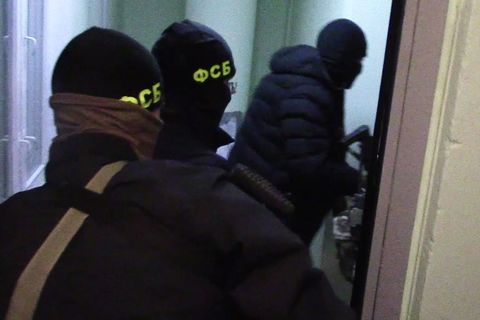
Читайте также
Обрастает подробностями арест начальника 2-го оперативного управления
Центра информационной безопасности (ЦИБ) ФСБ Сергея Михайлова. Наши
источники подтвердили, что Михайлова действительно задержали в ходе
заседания коллегии ФСБ. При этом задержание прошло
театрализованно-показательно: на голову офицера ФСБ, подозреваемого в
государственной измене, надели светонепроницаемый мешок.
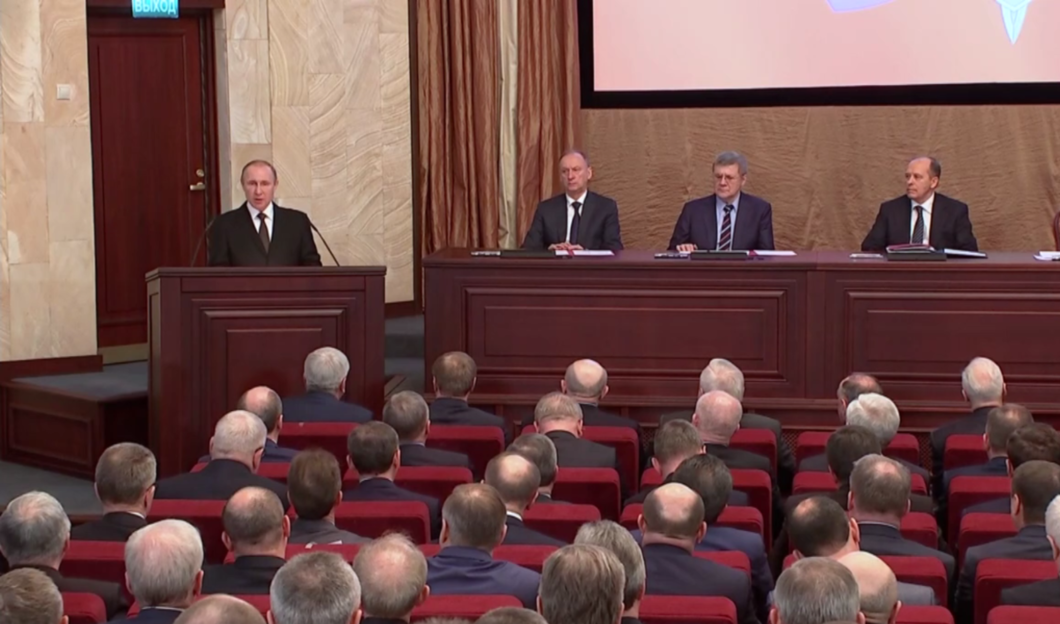
Первым эту информацию распространил
сайт «Царьград», созданный «православным олигархом» Константином
Малофеевым. Малофееву приписывают дружбу с Андреем Ивашко, руководителем
Центра защиты информации и специальной связи ФСБ (ЦЗИ). ЦИБ и ЦЗИ — в
какой-то мере дублирующие друг друга и потому конкурирующие структуры в
системе ФСБ. Поэтому появление на сайте, контролируемом Малофеевым,
подробностей ареста Михайлова не удивляет. Хотя несколько неожиданной
выглядит версия, выдвинутая изданием, что арестованный офицер ФСБ был
связан с хакерской группировкой «Шалтай-Болтай».
Михайлов якобы покровительствовал и курировал хакеров, прославившихся
взломами личных переписок Дмитрия Медведева, вице-премьера Аркадия
Дворковича, чиновников администрации президента, Минобороны,
Роскомнадзора.
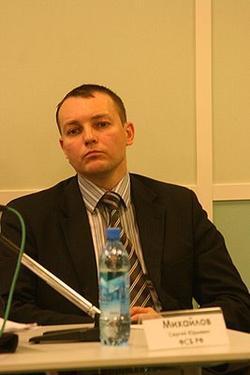
«Царьград» пишет, что за «Шалтай-Болтаем» может стоять ЦРУ, а
следовательно, и Михайлов мог сотрудничать с разведуправлением США. Во
всяком случае, офицеру инкриминируется не должностное или коррупционное
преступление, а именно государственная измена (ст. 275 УК РФ),
предусматривающая до 20 лет лишения свободы.
О Сергее Михайлове я впервые услышал в 2012 году, когда проводил
журналистское расследование об уголовном деле в отношении основателя и
гендиректора процессинговой компании Chronopay Павла Врублевского.
Бизнесмен тогда обвинил Михайлова в фабрикации уголовного дела.
Позже, в ходе процесса в Тушинском райсуде, Сергей Михайлов,
допрошенный в качестве свидетеля, подтвердил свое многолетнее знакомство
с Врублевским: «Врублевский — талантливый человек, который был
интересен нам своими связями…».
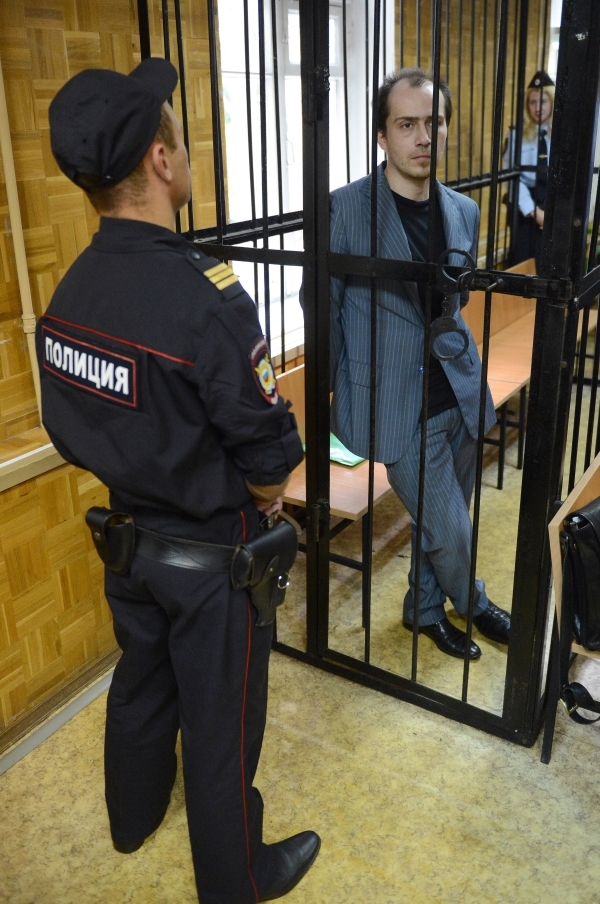
Тушинский райсуд приговорил Врублевского к 2,5 годам лишения свободы.
Срок он отбывал в одной из колоний в Рязанской области. Вернувшись в
Москву, бизнесмен снова занялся оперативным управлением компании
Chronopay, некогда контролировавшей 45% платежей по банковским картам в
Рунете, но сильно растерявшей свои позиции.
В сентябре прошлого года фамилия Павла Врублевского снова всплыла в
информационном пространстве, когда США обвинили владельца компании King
Servers россиянина Владимира Фоменко в кибератаке на избирательные
системы в американских штатах Аризона и Иллинойс, которая якобы была
произведена с восьми серверов, шесть из которых принадлежат компании
King Servers. Фоменко, в свою очередь, арендовал эти серверы у
голландской компании, контролируемой именно Врублевским.
По сведениям наших источников, эта история не осталась незамеченной в
ФСБ. Управление собственной безопасности спецслужбы еще в сентябре
начало служебную проверку и в декабре якобы пришло к выводу, что
информацию о King Servers, Фоменко и Врублевском американская разведка
получила от начальника 2-го оперативного управления Центра
информационной безопасности (ЦИБ) ФСБ Сергея Михайлова. Тут же были
произведены аресты…
Павел Врублевский от каких-либо комментариев отказался.
На сегодняшний день, по нашим сведениям, вместе с Сергеем Михайловым и сотрудником «Лаборатории Касперского» Русланом Стояновым арестованы еще два человека. В том числе коллега Михайлова, офицер Центра информационной безопасности ФСБ.
Арестованных офицеров ФСБ обвинили в сотрудничестве с ЦРУ
Есть обновление от 01:13 →
http://www.interfax.ru/russia/547817
Главе отдела ЦИБ ФСБ Сергею Михайлову и его заместителю Дмитрию Докучаеву предъявили обвинение в госизмене

Москва. 31 января. INTERFAX.RU - Арестованные по делу о
госизмене и хакерах сотрудники ФСБ России передавали конфиденциальную
информацию Центральному разведывательному управлению США, сообщили
"Интерфаксу" источники, знакомые с ситуацией.
"Начальник отдела Центра информационной безопасности ФСБ РФ Сергей
Михайлов и его заместитель Дмитрий Докучаев обвиняются в том, что,
нарушив присягу, стали сотрудничать с ЦРУ", - сказал один из
собеседников агентства.
Он не стал при этом уточнять, действовали ли они напрямую или через посредников.
"Всего по делу арестованы четыре человека, а в качестве соучастников
фигурируют до восьми человек. Обвинение предъявлено только четверым,
остальные могут отделаться статусом свидетеля", - отметил источник.
Другой источник агентства рассказал, что "темы хакерских атак и
предательства как бы накладываются друг на друга по делу, но не
пересекаются".
В России Суд продлил арест предполагаемого организатора хакерской группы "Шалтай-Болтай"Читать подробнее
Суд продлил арест предполагаемого организатора хакерской группы "Шалтай-Болтай"Читать подробнее
 Суд продлил арест предполагаемого организатора хакерской группы "Шалтай-Болтай"Читать подробнее
Суд продлил арест предполагаемого организатора хакерской группы "Шалтай-Болтай"Читать подробнее
"Каждый из фигурантов занимался своим делом - кто-то разрабатывал и
применял схемы кибератак, а кто-то сотрудничал с иностранными
спецслужбами. И эти направления шли параллельно и, как правило, не
пересекались", - сказал собеседник агентства.
Всю группу, по его данным, связывало то, что они были знакомы друг с
другом и имели отношение к IT-технологиям и сфере информационной
безопасности.
"Причем главным в этой цепочке был не старший по должности и званию", - подчеркнул источник.
25 января стало известно, что был арестован руководитель одного из
подразделений центра информационной безопасности (ЦИБ) ФСБ Сергей
Михайлов, а также глава отдела по расследованию киберпреступлений
"Лаборатории Касперского" Руслан Стоянов. По данным газеты "Коммерсант",
они находятся под стражей с начала декабря 2016 года.
Ранее сообщалось, что Лефортовский суд Москвы продлил до 8 марта
арест журналиста Владимира Аникеева, обвиняемого в незаконном доступе к
компьютерной информации и являющегося, по данным СМИ, организатором
хакерской группы "Шалтай-Болтай".
Источник "Интерфакса" подтвердил, что фигурантами уголовного дела о
взломе персональных аккаунтов высокопоставленных российских чиновников и
известных бизнесменов, помимо Аникеева, стали еще пять человек. Среди
них уже упомянутые - один из руководителей Центра информационной
безопасности ФСБ Михайлов и его заместитель Докучаев, а также бывший
глава отдела расследований компьютерных инцидентов "Лаборатории
Касперского" Руслан Стоянов.
Группа компьютерных взломщиков, именующих себя "Шалтай-Болтай" или
"Анонимный интернационал", стала известна несколько лет назад. Группа
специализируется на перехвате переписки и взломе аккаунтов
высокопоставленных чиновников, крупных фирм и СМИ и дальнейшей
публикации или продаже через интернет полученных данных.
Консультант Лубянки завис в Лефортово
http://kommersant.ru/doc/3200840
Расследование вокруг ЦИБ ФСБ привело к аресту сотрудника "Лаборатории Касперского"
Как стало
известно "Ъ", арестован топ-менеджер "Лаборатории Касперского" Руслан
Стоянов, возглавляющий в компании отдел по расследованию
киберпреступлений, тесно сотрудничающий с правоохранительными органами.
По данным "Ъ", арест может быть связан с расследованием в отношении
одного из заместителей главы центра информационной безопасности (ЦИБ)
ФСБ. В "Лаборатории Касперского" утверждают, что дело не имеет отношения
к работе компании, но эксперты отмечают, что оно может повлиять на
отношения интернет-бизнеса с ФСБ.
Глава отдела расследования компьютерных
инцидентов "Лаборатории Касперского" Руслан Стоянов с декабря 2016 года
находится под арестом в СИЗО "Лефортово", рассказал источник "Ъ",
близкий к ФСБ. В пресс-службе "Лаборатории Касперского" подтвердили
арест, подчеркнув, что расследование не имеет отношения к компании и
"ведется в отношении частного лица".
Одновременно по тому же делу арестован и
руководитель одного из подразделений ЦИБ ФСБ Сергей Михайлов, утверждает
источник "Ъ". В центре общественных связей, ЦИБ и управлении
собственной безопасности (УСБ) ФСБ не ответили на запросы "Ъ".
Дозвониться до Сергея Михайлова по номеру его мобильного не удалось.
Один из его знакомых подтверждает, что номер недоступен с декабря. В
аккаунтах в социальных сетях и онлайн-мессенджерах видно, что господин
Стоянов последний раз был онлайн 4 декабря, господин Михайлов —
5 декабря.
О
проблемах в ЦИБ "Ъ" рассказывал 13 января — по неофициальной
информации, свой пост может покинуть руководитель подразделения Андрей
Герасимов. Собеседники "Ъ" связывали происходящее как раз с
расследованием УСБ ФСБ в отношении одного из его заместителей. По их
данным, в числе прочего проверяются взаимоотношения ЦИБ с частными
компаниями, которые сотрудничали с подразделением при проведении
экспертиз по киберпреступлениям.
Расследование УСБ ведется по подозрению в
нарушении ст. 275 УК РФ ("Государственная измена"), рассказали "Ъ"
топ-менеджеры и совладельцы трех IT-компаний и подтвердил собеседник,
близкий к ФСБ, бывший федеральный чиновник, а также руководитель одного
из отраслевых объединений в сфере связи. Двое из них уточнили, что в
рамках расследования проверяют информацию о якобы получении сотрудником
ЦИБ денег от одной из иностранных организаций при посредничестве
сотрудника некой российской компании в сфере информационной
безопасности.
Ситуация в ЦИБ рискует отразиться на рынках
кибербезопасности и электронной коммерции, участникам которых, возможно,
придется заново выстраивать отношения с государством. Два собеседника
"Ъ", знакомые с Сергеем Михайловым, утверждают, что это один из ключевых
сотрудников ЦИБ, который "по сути, курирует весь интернет-бизнес в
стране". "Этот человек, на мой взгляд, во многом неформально определяет
политику всей отрасли кибербезопасности и интернет-коммерции",—
подтверждает давний знакомый господина Михайлова, основатель платежной
системы Chronopay Павел Врублевский. Влияние событий в ЦИБ на отрасль,
считает он, можно будет оценивать лишь после появления официальных
данных от ФСБ.
Сергей Михайлов также участвует в работе
общественных организаций. Он, в частности, входит в кластер по
информационной безопасности Российской ассоциации электронных
коммуникаций. Координатор кластера и директор по стратегическим проектам
Института исследований интернета Ирина Левова сообщила "Ъ", что на
последнем совещании 12 декабря господина Михайлова не было, хотя прежде
он присутствовал всегда. Она называет его "очень компетентным"
специалистом, который "помогает достичь взаимопонимания между
интернет-компаниями и спецслужбами".
Отдел расследования компьютерных инцидентов
"Лаборатории Касперского" с 2013 года сотрудничал с ФСБ и МВД в рамках
анализа киберпреступлений и экспертного сопровождения уголовных дел в
сфере кибербезопасности. Руслан Стоянов до 2006 года работал в
управлении специальных технических мероприятий ГУВД Москвы (управление
"К"). Другие сотрудники отдела тоже выходцы из управления "К", а также
из Следственного комитета РФ, сообщали ранее в компании. "Руслан Стоянов
известен как человек, который умеет выстраивать неформальные контакты.
Думаю, что в "Лаборатории Касперского" после этого инцидента подумают о
необходимости дистанцироваться от правоохранительных органов и построить
более формальные отношения с ФСБ",— говорит главный редактор
Agentura.ru Андрей Солдатов. ФСБ, по его мнению, в любом случае и дальше
будет активно сотрудничать с компанией при расследовании
киберпреступлений, поскольку "деваться некуда — у "Лаборатории
Касперского" лучшая экспертиза".
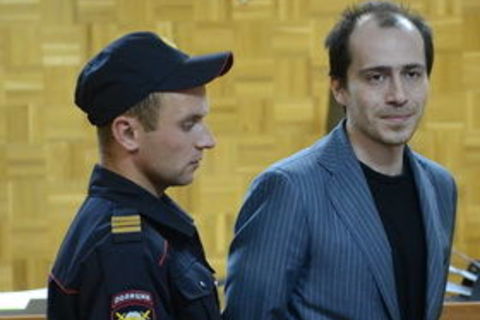


KAMI SEKELUARGA TAK LUPA MENGUCAPKAN PUJI SYUKUR KEPADA ALLAH S,W,T
BalasHapusdan terima kasih banyak kepada AKI atas nomor yang AKI
beri 4 angka [1869] alhamdulillah ternyata itu benar2 tembus .
dan alhamdulillah sekarang saya bisa melunasi semua utan2 saya yang
ada sama tetangga.dan juga BANK BRI dan bukan hanya itu KI. insya
allah saya akan coba untuk membuka usaha sendiri demi mencukupi
kebutuhan keluarga saya sehari-hari itu semua berkat bantuan AKI..
sekali lagi makasih banyak ya AKI… bagi saudara yang suka PASANG NOMOR
yang ingin merubah nasib seperti saya silahkan hubungi KI JAYA,,di no (((085-321-606-847)))
insya allah anda bisa seperti saya…menang NOMOR 750 JUTA , wassalam.
Assalamu alaikum warohmatullahi wabarakatu.
BalasHapusSaya ingin berbagi cerita siapa tau bermanfaat kepada anda bahwa saya ini seorang TKI dari johor bahru (malaysia) dan secara tidak sengaja saya buka internet dan saya melihat komentar bpk hilary joseph yg dari hongkong tentan MBAH WIRANG yg telah membantu dia menjadi sukses dan akhirnya saya juga mencoba menghubungi beliau dan alhamdulillah beliau mau membantu saya untuk memberikan nomer toto 6D dr hasil ritual beliau. dan alhamdulillah itu betul-betul terbukti tembus dan menang RM.457.000 Ringgit selama 3X putaran beliau membantu saya, saya tidak menyanka kalau saya sudah bisa sesukses ini dan ini semua berkat bantuan MBAH WIRANG,saya yang dulunya bukan siapa-siapa bahkan saya juga selalu dihina orang dan alhamdulillah kini sekaran saya sudah punya segalanya,itu semua atas bantuan beliau.Saya sangat berterimakasih banyak kepada MBAH WIRANG atas bantuan nomer togel Nya. Bagi anda yg butuh nomer togel mulai (3D/4D/5D/6D) jangan ragu atau maluh segera hubungi MBAH WIRANG di hendpone (+6282346667564) & (082346667564) insya allah beliau akan membantu anda seperti saya...
BalasHapusThis is really wonderful site with great details.
Mizoram Board HSSLC Result 2017
MP HSSC Result 2017
NIOS Senior Secondary Result 2017
NBSE HSSLC Result 2017
Odisha CHSE Result 2017
PSEB 12th Result 2017
BalasHapusAmazing information and this is really wonderful site.
JEE Main Answer Key 2017
JEE Main Rank Predictor 2017
JEE Main Paper Analysis 2017
JEE Main Paper 1 Answer key 2017
JEE Main Paper 2 answer key 2017
NEET Admit card 2017